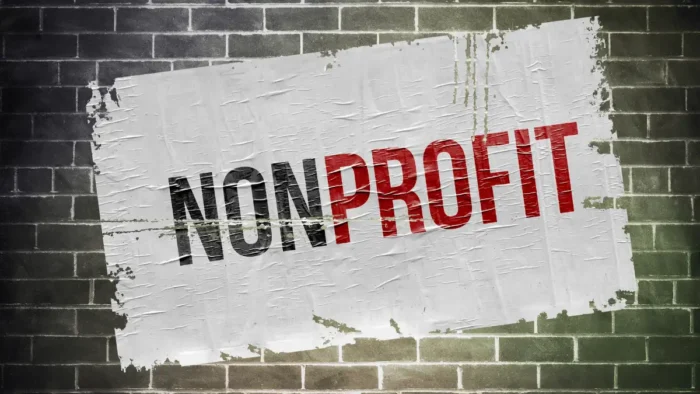In the US, there are over 1.5 million nonprofit organizations, according to the National Center for Charitable Statistics (NCCS), and they play a crucial role in advocating for social causes and creating positive change in society.
While they excel in raising awareness and mobilizing public support, nonprofits often face challenges in navigating complex political landscapes to effectively influence policy decisions. This is where partnering with lobbying firms can prove invaluable.
According to Statista, there are over 12,000 registered lobbyists in the US. Lobbyists and lobbying firms possess the expertise, resources, and networks needed to amplify the voice of businesses and organizations and drive meaningful policy changes. Nonprofits, too, can utilize the benefits these firms and their lobbyists provide.
This article will explore why nonprofit organizations should consider working with lobbying firms.
Expertise and Legislative Insight
Lobbying firms specialize in understanding the intricacies of the legislative process and have extensive knowledge of how policies are formulated and implemented. By partnering with a lobbying firm, nonprofit organizations gain access to this expertise and legislative insight, enabling them to navigate the complex maze of government decision-making.
As explained by Corry Associates, lobbyists are well-versed in identifying opportunities for engagement, formulating effective strategies, and building relationships with policymakers. Their experience and understanding of political dynamics allow nonprofits to align their advocacy efforts with the legislative process, significantly increasing their chances of success.
Take Massachusetts’ Tobacco-Free-Kids as an example. Boston, Massachusetts, takes center stage in the country’s top 20 lobbying firms. For lobbying, Massachusetts works with the very best, and the case with Tobacco-Free-Kids proves just that.
Working with a Boston lobbying firm, Tobacco-Free-Kids, helped make Massachusetts the first US state to pass legislation that bans the sale of flavored tobacco products. The tobacco companies did pushback, but when you’re working with a top lobbying firm in Boston, MA, no pushback, no matter where it’s coming from, can stop you from doing your thing and contributing to society in the best way possible.
Enhanced Advocacy Power and Influence
Effective advocacy often requires more than just passionate speeches and public campaigns. It involves engaging policymakers, building coalitions, and mobilizing support from stakeholders across various sectors. Lobbying firms have established networks and relationships with key decision-makers, allowing nonprofits to leverage their expertise to build powerful alliances.
By partnering with lobbying firms, nonprofit organizations can tap into their extensive networks and gain access to policymakers, government officials, and other influential stakeholders. This enhanced advocacy power and influence can amplify the nonprofit’s voice and increase its visibility.
Strategic Campaign Development
Developing an impactful advocacy campaign requires careful planning, execution, and coordination. Lobbying firms bring a wealth of experience in campaign development, including message crafting, coalition building, grassroots mobilization, and media relations. They can assist nonprofit organizations in developing comprehensive and strategic campaigns tailored to their specific objectives.
Lobbyists understand the importance of targeting key decision-makers, creating compelling narratives, and using evidence-based arguments to build a persuasive case. By collaborating with lobbying firms, nonprofits can develop well-rounded, data-driven campaigns that effectively communicate their message to policymakers and the public.

Regulatory and Policy Expertise
Navigating the regulatory landscape can be daunting for nonprofit organizations, especially when advocating for policy changes. Lobbying firms possess a deep understanding of regulatory frameworks and policy landscapes, enabling them to guide nonprofits through complex processes. They can help organizations identify relevant regulations, propose amendments, and craft policy recommendations that align with their goals.
Lobbying firms are also well-versed in monitoring policy developments and can alert nonprofits to emerging opportunities or threats. This regulatory and policy expertise ensures that nonprofits can engage with decision-makers in a targeted and informed manner, maximizing their impact.
Legislative Monitoring and Tracking
In the fast-paced world of policymaking, nonprofit organizations must stay informed about legislative developments relevant to their cause. Lobbying firms excel in legislative monitoring and tracking, closely monitoring policy proposals, amendments, and committee hearings.
With a lobbying firm by their side, nonprofits can receive regular updates on legislative activities and gain timely insights into potential opportunities for engagement. This information allows organizations to proactively shape their advocacy strategies, provide input during critical stages of the legislative process, and respond effectively to emerging issues.
Final Thoughts
OpenSecrets report that in 2022, federal lobbying spending in the US crossed the $4 billion mark. This was the highest lobbying spending in the country since 2010, but it won’t be the last time the US sees the highest-ever spending on lobbying. With time, this expenditure will only grow, and businesses and organizations are well aware of that.
Nonprofits are also aware of the importance lobbying firms play in their activities. Based on the discussion we’ve had above, it’s also evident that the benefits that these firms provide nonprofits will be hard to come by without their support. Thus, the alliance between lobbyists and nonprofits is indeed a necessary one.





